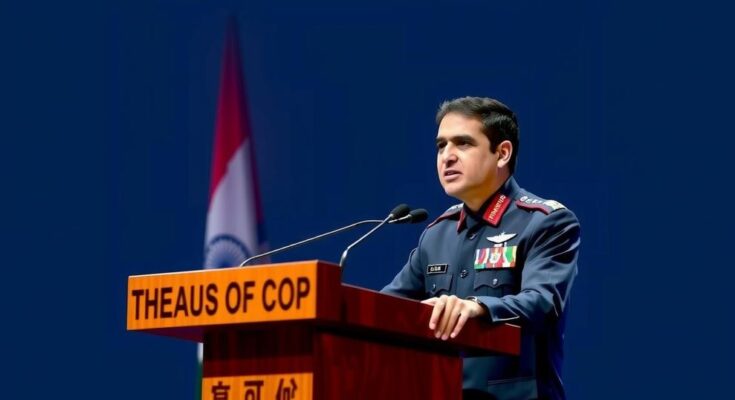At COP29, India led a revolt against a climate finance deal viewed as insufficient for developing nations. Rejecting the agreement, India noted the inadequacy of the proposed $300 billion annual target by 2035. This stance was supported by various developing countries and highlighted a significant schism between their needs and the expectations set by developed nations, who celebrated the deal as a progressive step forward in climate action.
The conclusion of COP29 was marred by discord as India spearheaded a revolt against a climate finance agreement deemed insufficient for developing countries. India’s rejection of the deal, which it described as “stage-managed,” quickly garnered support from other developing nations. The agreement proposed a financing goal of at least $300 billion annually by 2035 but was criticized for its lack of ambition and disregard for the pressing needs of nations most affected by climate change. India’s negotiator, Chandni Raina, emphasized that the proposed financing would undermine the ability of developing countries to implement their climate commitments effectively. She articulated concerns regarding the delayed funding timeline and highlighted the inadequacies of sources outlined in the agreement, which included reliance on diverse financing streams and multilateral development banks to underwrite contributions from developing countries.
Despite the fierce objections, developed nations celebrated the outcome, framing COP29 as a significant step in climate finance. EU climate envoy Wopke Hoekstra characterized the agreement as ambitious while UN officials called it an essential milestone for global cooperation. However, many representatives from the Global South expressed dismay at the perceived inequity and lack of accountability within the deal, which they felt failed to address the realities of climate vulnerabilities in their regions. Amidst this schism, the negotiations illustrated the ongoing tensions between developed and developing countries regarding climate responsibilities and financing.
COP29, the 29th Conference of the Parties to the UNFCCC, served as a platform for nations to discuss climate action and finance strategies. In recent years, developing countries have increasingly voiced concerns about the adequacy of financial support from developed nations, which they argue is crucial for their transition to sustainable practices. The discord during COP29 highlighted the divergent perspectives on climate financing, with developed countries often promoting broad financial goals while developing nations prioritize immediate and tangible support for addressing climate change impacts. The disagreement over the New Collective Quantified Goal (NCQG) reflects deeper issues of trust, accountability, and historical responsibility surrounding climate negotiations.
The events of COP29 underscore the significant divide between the Global North and South regarding climate finance commitments. India’s rejection of a climate finance deal it deemed inadequate showcases the urgent need for developed countries to provide meaningful support to their developing counterparts. With developing nations already facing the brunt of climate change impacts, the call for enhanced collaboration and trust in climate negotiations remains paramount. Moving forward, the challenge will be to reconcile differing priorities and chart a path towards a genuinely inclusive climate action framework that acknowledges historical inequalities.
Original Source: www.hindustantimes.com




